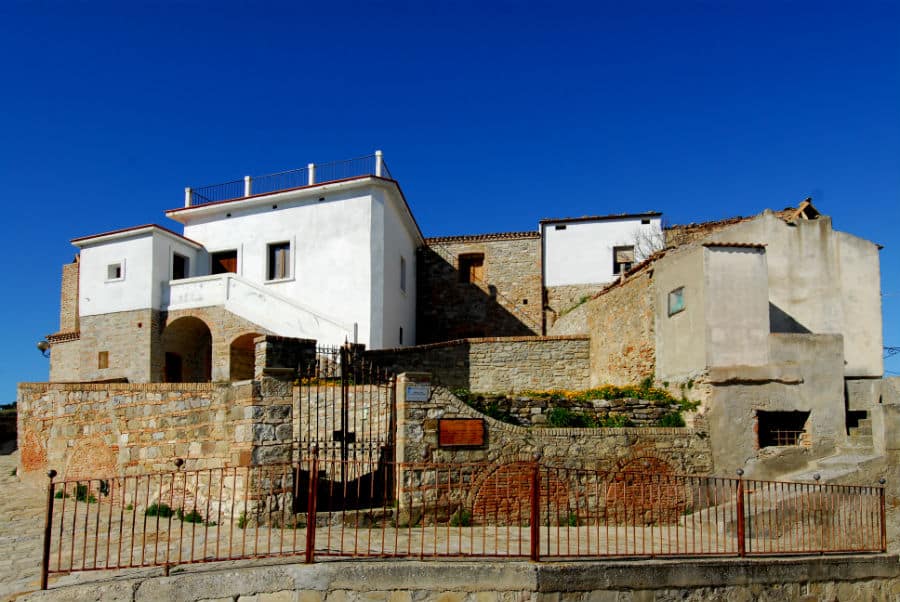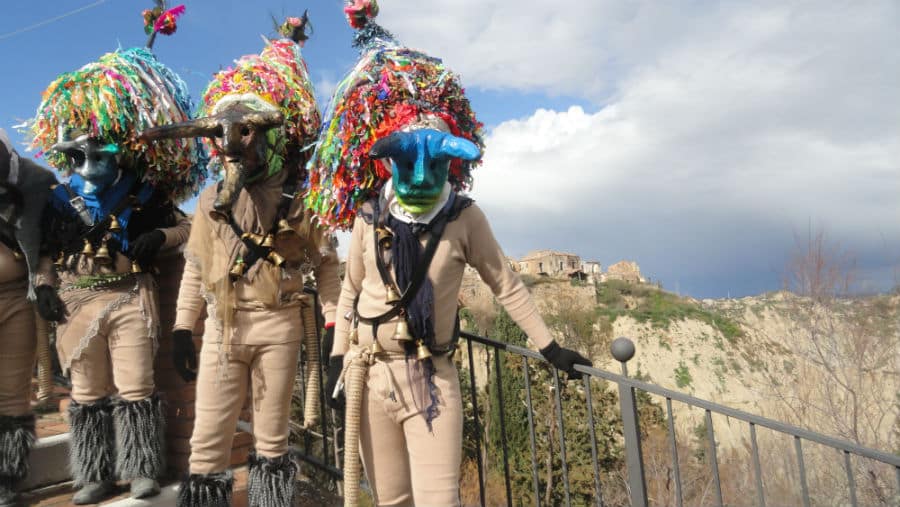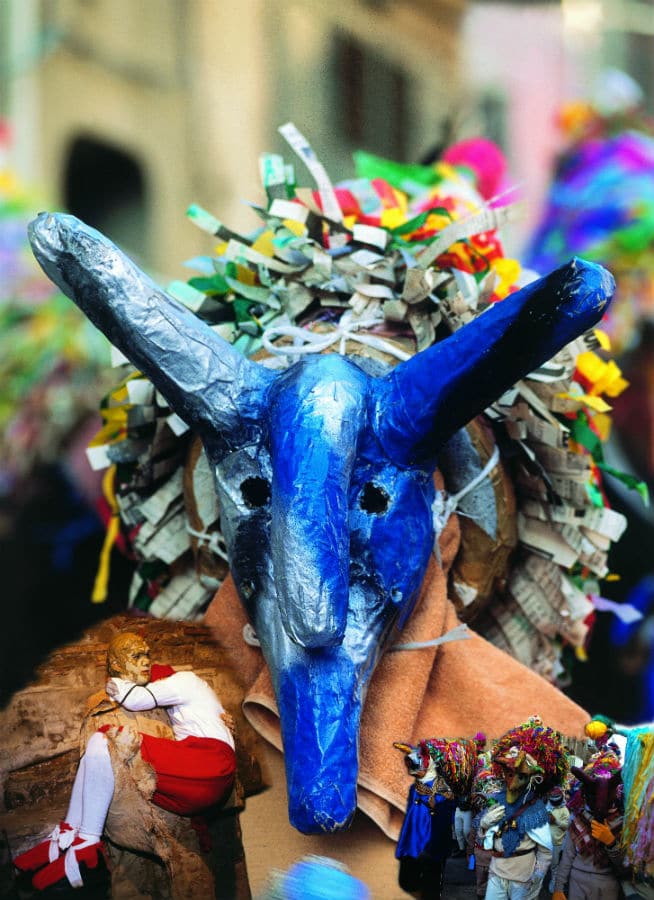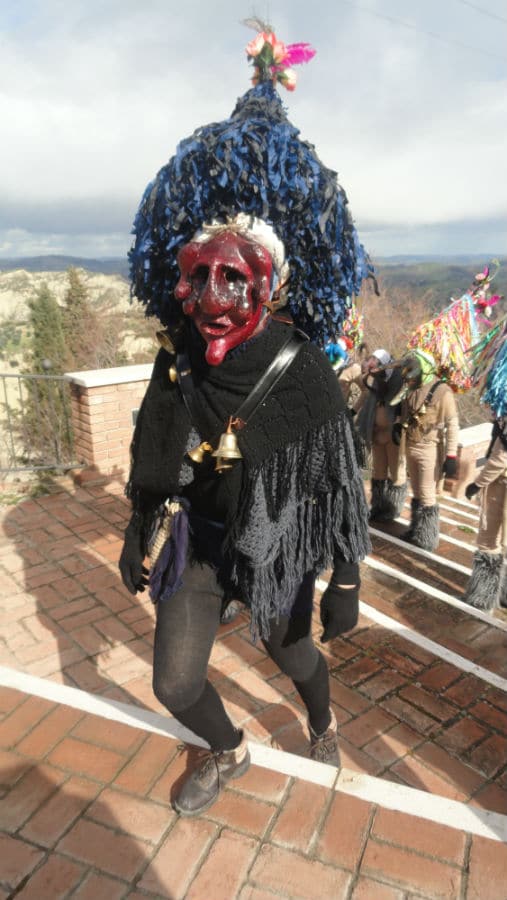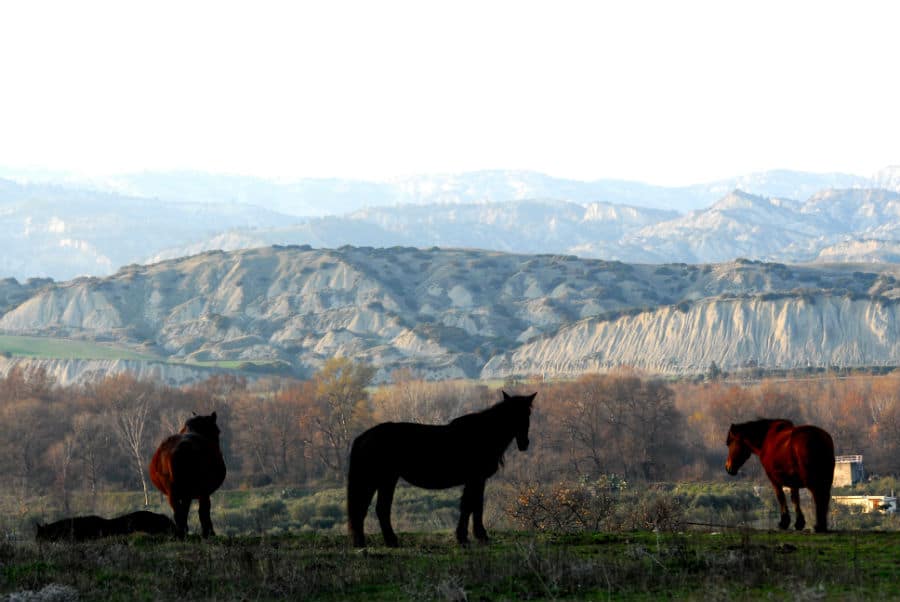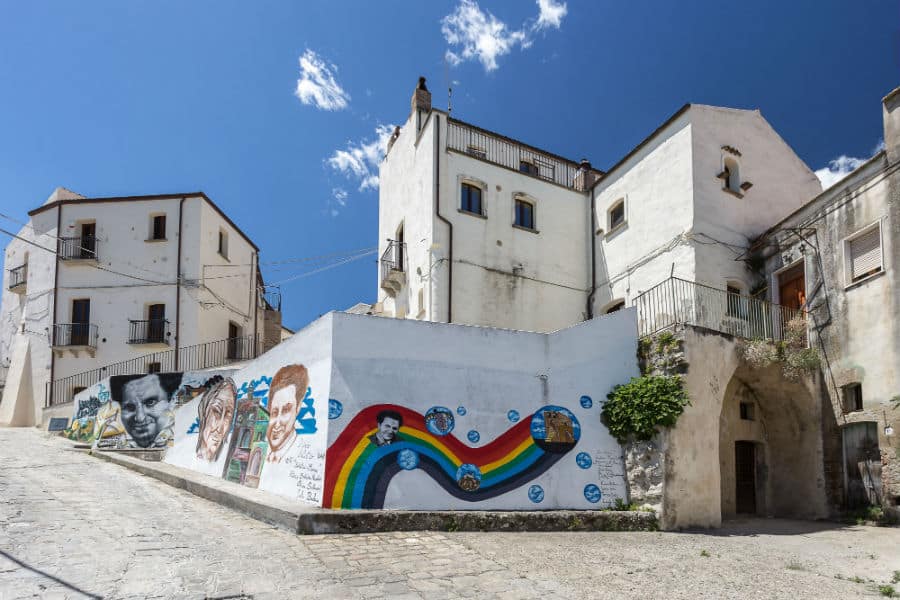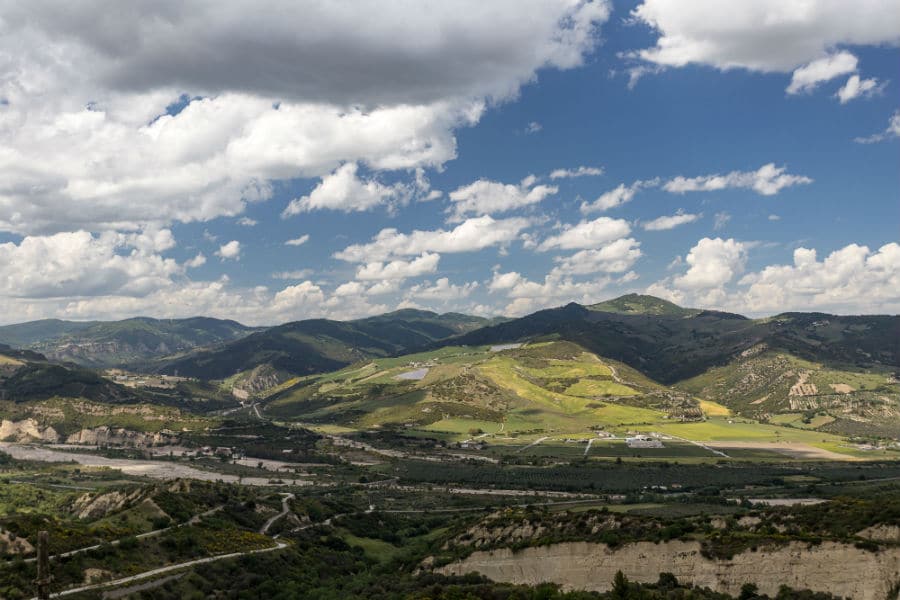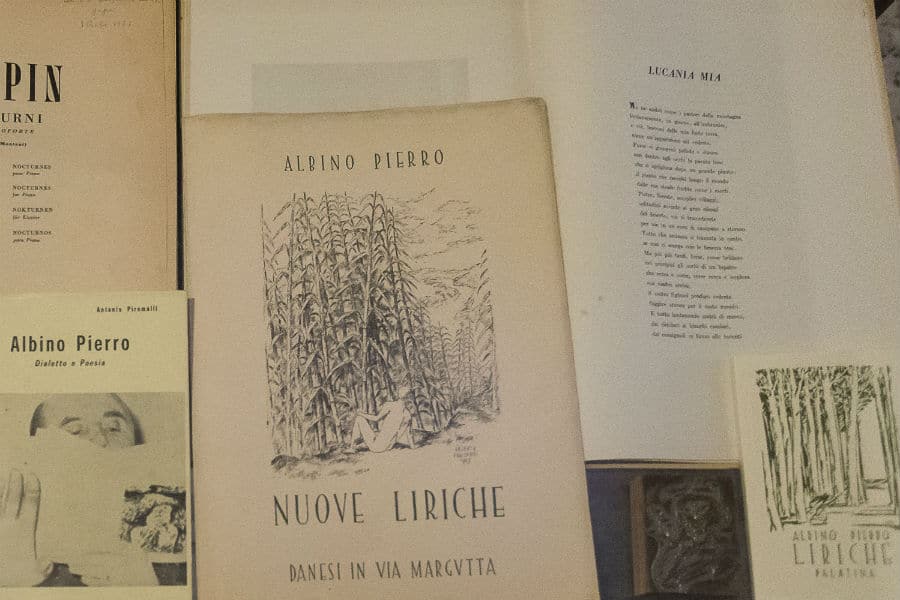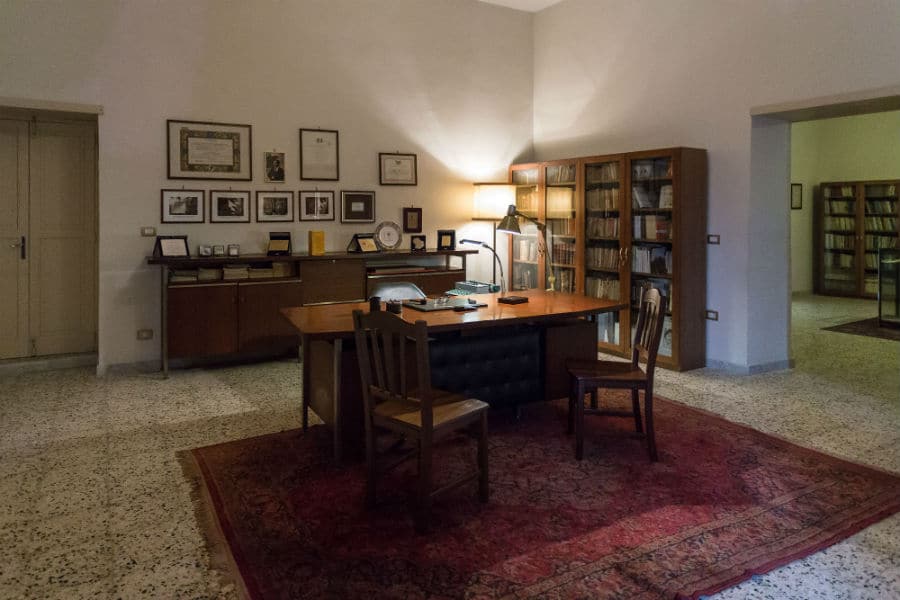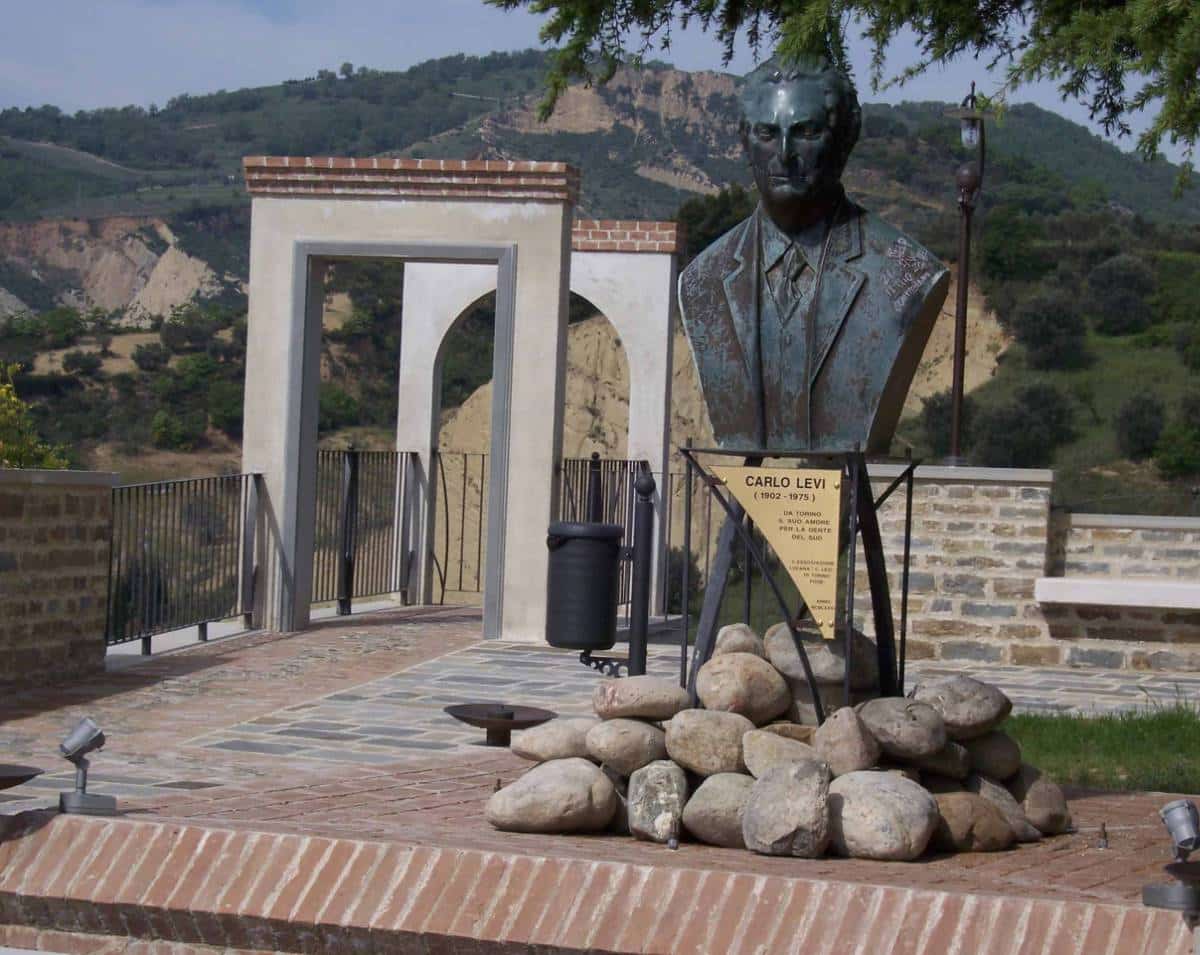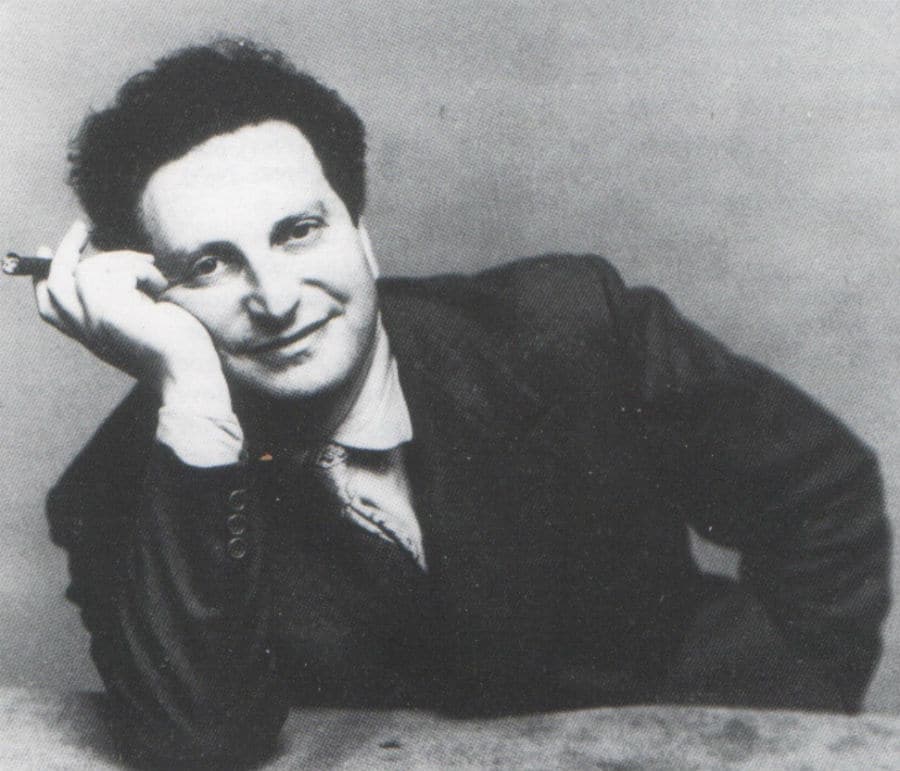The village of Aliano is the place in which it was confined to the writer Carlo Levi which therein became bury, in Basilicata. Its territory is characterized by the typical landscape of the gullies.
The name of the village derives from the latin Praedium Allianum, i.e. Podere di Allius, noble Roman. Given the proximity to the Agri and Sinni rivers, since antiquity was an important center of trade between the greek civilization, etruscan and Enotria. The first texts in which is officially cited Aliano are dated back to 1060, the year in which dates back a papal bull that attributed to the Bishop of Tricarico the administration of the village. In the VIII century the different caves dug in the sedimentary rocks of alluvial origin situated in the area of Fosso San Lorenzo, already inhabited in the prehistoric age, entertained numerous Basilian monks escaped to the iconoclastic persecutions in the East. In the medieval era Aliano was the fief of various families, including the Sanseverino, the Carafa and the column.
In the recent history of this small center we cannot fail to mention the writer Carlo Levi that ambientò here the book Christ Stopped at Eboli (1945). Levi during the fascist regime in the years 1935-36 was condemned to exile in Lucania because of its anti-fascist activities and spent a long period in Basilicata, first Grassano and subsequently to Aliano (which in the book is called Gagliano, imitating the local pronunciation), where he had the opportunity to know the reality of that land and its people. The writer in his last wishes expressed to be buried to Aliano "between its peasants". In the country are still intact all the places described in the novel and alleys are impressed some phrases book symbol. Levi had here the opportunity to discover another Italy that was precisely that peasant del Mezzogiorno.
The Carnival of Aliano is one of the carnivals in the Lucan tradition. The day of the Shrove Tuesday, every year, singular figures roam the streets of Aliano, are horned masks that evoke the diabolical creatures and goffe, whose character threatening is mitigated by the colorful cappelloni that decorate the head. The masks are the protagonists of an improvised comedy, called "Fras". Parade through the village moving to the sound of accordions and gloomy gloomy. The Carnival is divided in two days, on Sundays and on Shrove Tuesday, in the course of which alternate parades involving even masks of neighboring countries and the palate is gladdened by the tasting of typical dishes.
There are numerous initiatives related to the Literary Park of Carlo Levi, in particular the sentimental trips in the places linked to the confinement of the writer, and days of tasting of typical products. Of great importance is the festival of the paesologia, directed by Franco Arminio. To Aliano is also plays the National Literary Prize Carlo Levi. With annual recurrence occurs within the historic center of Aliano and along its impressive exhibition routes, the Festival of Anthropology.
The economy is based mainly on agriculture and pastoralism; the village is surrounded by orchards of olive trees that make a flourishing industry for the production of olive oil, fruit orchards (in particular orchards and citrus groves), and you will practice the rearing of goats and sheep. The presence of the archaeological remains of the Neolithic and the tomb of Carlo Levi make the country which is important from the point of view of tourism-cultural. In fact for the tracks are engraved passages from the book Christ Stopped at Eboli and residence and the places narrated in the book remained intact.


